Experiencing gas pain is nothing to be embarrassed about because everyone has had gas at some point. Although passing intestinal gas, known as flatus, can be embarrassing if it is excessive, it is a natural bodily function that cannot be controlled. However, gas that gets trapped and causes pain can be disconcerting, especially if you have chest pain due to gas.
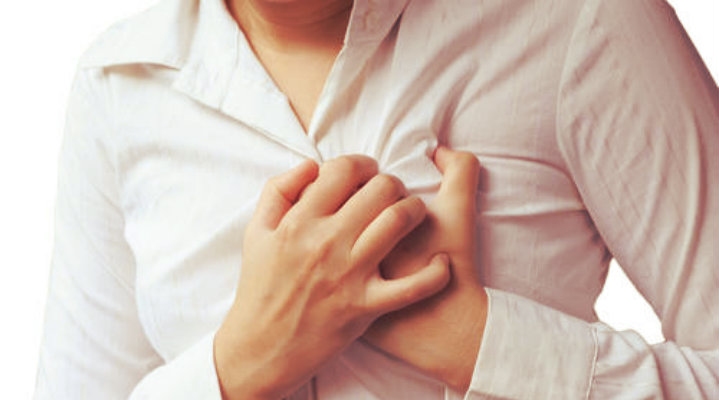
Causes of Gas Buildup
When carbohydrates in the food you eat do not get completely digested in the small intestine, the bacteria that live in the colon ferment them and form gas. Although the pain is in your chest, it is actually the result of gas buildup in the abdomen, which can be caused by the following conditions.
1. High Fiber Foods and Carbonated Drinks
Foods that contain a high amount of fiber can also cause gas to build up. Some of these foods include fruits, vegetables, whole grains, beans, peas and other legumes. Drinking carbonated beverages, like soda and beer, will also cause gas to form as can fiber supplements containing psyllium.
2. Swallowed Air
Every time you eat, drink, chew gum or drink through a straw you swallow air. When too much air is swallowed, some of it moves into your lower digestive tract and can lead to gas buildup. Air is also swallowed when people are nervous or eat their meals too quickly.
3. Health Condition
Sometimes the formation of excessive gas is a symptom of a chronic health condition. Some of these chronic conditions include inflammatory bowel diseases like Crohn's disease or ulcerative colitis and diverticulitis. Diabetics often suffer with excessive gas and bloating because it causes an overgrowth of bacteria in the small intestine.
4. Food Intolerances
Some people cannot consume dairy products because their bodies cannot break down the sugar or lactose they contain. The main symptoms for lactose intolerance are bloating and excessive gas. Some people also have the same problem with food containing gluten, which is a protein found in wheat and other grains.
5. Artificial Additives
Many people cannot tolerate the artificial sweeteners that are found in sugar-free foods, candy and gum. These sweeteners contain sorbitol, mannitol and xylitol, which can cause gas and diarrhea in healthy people.
6. Heartburn
Often times, chest pain due to gas may be the result of heartburn, which is caused when stomach acids escape and flow up into the esophagus. Along with gas, this can cause nausea and a general feeling of uneasiness. If you have frequent heartburn, it could indicate a condition like acid reflux or gastroesophageal reflux disease, or GERD.
Symptoms of Trapped Gas
The symptoms of trapped gas are usually not the same for everyone and they may be more serious for some people than others. Some people may experience a feeling of heaviness or pressure in their chest, along with widespread pain. This can also cause them to sweat, which when combined, these symptoms can lead some to believe they are having issues with their heart.
Other symptoms of trapped gas can make it difficult for people to sit or lay down, causing them to be unable to sleep. You may also need to belch frequently as your body tries to relieve itself of the gas trapped in your chest.
How to Deal with Chest Pain Due to Gas
1. Drink Plenty of Fluids
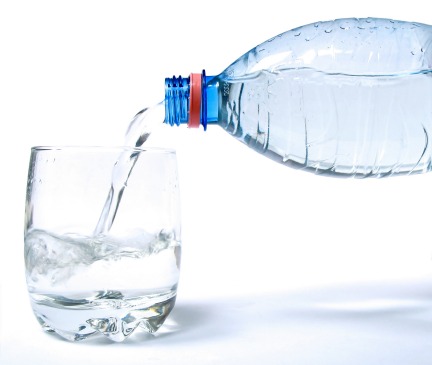
Since gas pain is often the result of poor digestion or undigested food in the small intestines, drinking fluids helps to push undigested food through the body. Water, hot tea or other hot beverages will also flush impurities from the body and help digest foods high in fiber.
2. Keep Clear of Carbonated Drinks
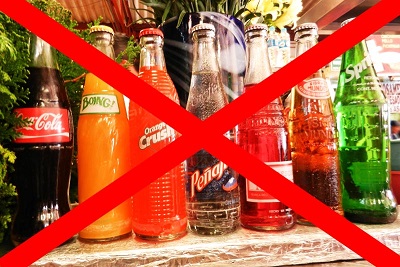
While it is important to drink fluids, you should avoid carbonated drinks. The carbonation in some drinks is made with gas and they will only worsen any gas that is already present.
3. Add in Apple Cider Vinegar
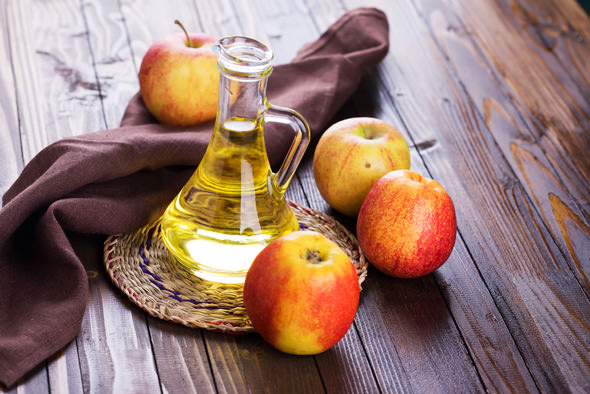
Apple cider vinegar is known for its many health benefits, including aiding digestion. Many homeopathic practitioners recommend having two tablespoons of apple cider vinegar mixed in a glass of water every day to help keep your immune system healthy and this mixture can also help to relieve gas.
4. Avoid Dairy Products
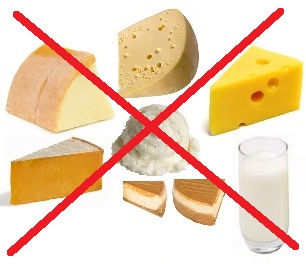
If you notice you feel gassy or bloated after drinking milk or consuming other dairy products, then you may have lactose intolerance. When you experience gas or bloating, take note of what you ate and, if you see a pattern, remove that type of food from your diet. This will make you more aware of the foods to which your body may be intolerant.
5. Try Some Exercises

If you are experiencing chest pain due to gas, you can lie down in bed and try shifting positions by bringing your knees up to your chest or kneeling on the bed to relieve it. You can also try to exercise by cycling your legs or scissoring them in the air to help relieve gas.
Regular exercise aids the digestive system, so if you are having bloating or gas issues, add a daily walk to your routine to prevent them.
6. More Remedies
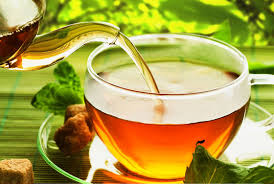
- Herbal teas: Many herbal teas contain anti-inflammatory agents that can relieve gas. Simply boil a cup of water and add a tea bag of peppermint, chamomile or ginger tea to help with gas pain.
- Lemon juice: The citric acid in lemons has been proven to help break down foods that can cause gas in the intestines. Mix two tablespoons of lemon juice in a glass of warm water and drink it every morning to keep your digestive system healthy.
- Baking soda: If have gas, mix a teaspoon of baking soda with a cup of hot water to relieve it.
